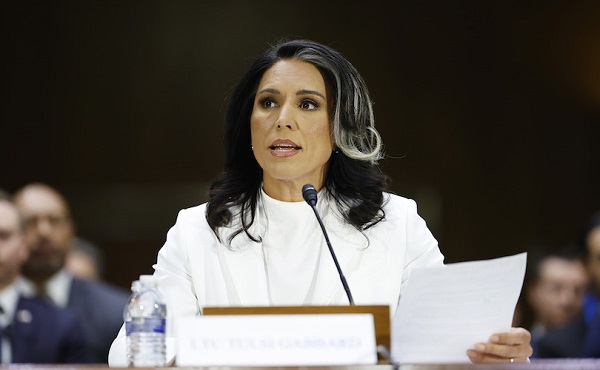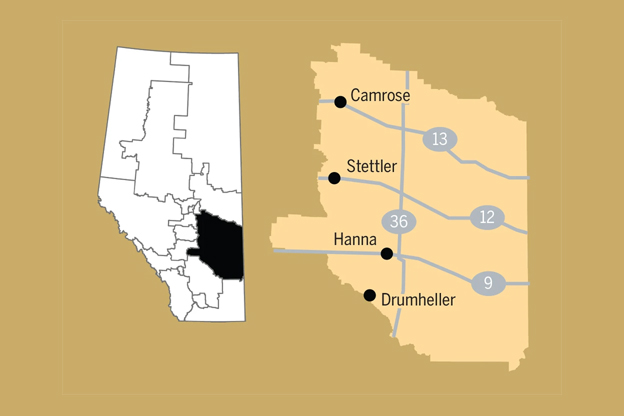Uncategorized
Trump says he answered Mueller questions ‘very easily’

WASHINGTON — President Donald Trump says he “very easily” answered written questions from special counsel Robert Mueller, though he speculated that the questions had been “tricked up” to try to catch him in a lie. He said he hadn’t submitted his answers to investigators yet.
“You have to always be careful when you answer questions with people that probably have bad intentions,” Trump told reporters Fridat in his latest swipe at the probe into 2016 election interference and possible ties between Moscow and the president’s campaign.
The president did not say when he would turn over the answers to Mueller, but his attorney, Rudy Giuliani, indicated it could happen next week. The special counsel has
During months of back-and-forth negotiations with the special counsel office, Trump’s lawyers have repeatedly
Trump’s written response, though not yet delivered, signals a new phase in the Mueller probe, the year-and-a-half-long investigation that has produced guilty pleas and convictions from several top Trump aides even as the special counsel and the White House have engaged in lengthy negotiations about how — or if — the president would testify.
Though he spent hours with his attorneys, Trump insisted: “My lawyers don’t write answers, I write answers.”
The president’s remarks were fresh evidence of his return to the ominous rhythms of the Russia probe after spending heady weeks enjoying adulation-soaked campaign rallies before the midterm elections.
Despite Trump’s insistence Friday that he’s “very happy” with how things are going, his frustrations with the ongoing probe have been evident everywhere from his overheated Twitter feed this week to his private grousing that the special counsel may target his family. Adding to his grim outlook has been the barrage of criticism he’s getting over his choice for acting attorney general and late-arriving election results that have largely been tipping toward House Democrats.
“The inner workings of the Mueller investigation are a total mess,” Trump tweeted Thursday as part of a series of morning posts. The investigators don’t care “how many lives they can ruin,” he wrote.
A day later, he tried to put a rosier shine on the situation, telling reporters: “I’m sure it will be just fine.”
The president continued to maintain his innocence while launching new broadsides at the probe. He denied being “agitated” despite his outbursts the day before.
After a relative lull in the run-up to the midterms, the Russia probe has returned to the forefront of Washington conversation and cable news chyrons. There has been widespread media coverage of two Trump allies — Roger Stone and Jerome Corsi — who say they expect to be charged.
The president has expressed concerns behind closed doors that Mueller is closing in on his inner circle, including potentially his eldest son.
For months, Trump has told confidants he fears that Donald Trump Jr., perhaps inadvertently, broke the law by being untruthful with investigators in the aftermath of a June 2016 Trump Tower meeting with a Kremlin-connected lawyer, according to one Republican close to the White House.
Trump has also complained about efforts in the Senate by his longtime foe, Arizona Sen. Jeff Flake, to introduce legislation to protect the special counsel, according to the officials and Republicans.
Additionally, Trump has told confidants in recent days that he is deeply frustrated by widespread criticism of his choice of Matthew Whitaker for acting attorney general, according to four officials and Republicans close to the White House who spoke on condition of anonymity. Whitaker has been a vocal opponent of the special counsel probe.
One argument against Whitaker was that he has not been confirmed by Senate. Trump, in turn, contended that the criticism was unfair since Mueller also was not confirmed for his post. The special counsel position does not require confirmation, and the former FBI director was confirmed for that previous job.
The president also took note of news coverage of his former personal attorney, Michael Cohen, arriving in Washington this week, potentially to meet with Mueller’s investigators. Cohen has pleaded guilty to a series of crimes and has said under oath that Trump ordered him to make hush-money payments to cover up an affair. He has undertaken an unlikely public relations tour as he looks to make a deal to reduce his prison sentence.
The renewed focus on the looming threat from Mueller comes as Trump settles back into the day-to-day routines of governing after the whirlwind campaign in which he spent weeks in front of adoring rally crowds while whipping up his base with harsh rhetoric about migrants moving through Mexico.
He faced criticism from both sides of the aisle for his weekend trip to Paris, during which he scuttled a visit to a World War I ceremony due to bad weather and further strained ties with traditional Western allies.
On other topics:
— Despite his insistence that Americans no longer have to fear North Korea’s nuclear program, news of Pyongyang’s persistent weapons program made headlines this week.
— And the White House is hurriedly stepping up efforts to prepare for a series of investigations certain to be launched by Democrats once they take control of the House in January.
Even as Trump mused in the West Wing about making staffing changes, he pushed back against media coverage of his recent setbacks.
“The White House is running very smoothly and the results for our Nation are obviously very good,” Trump tweeted. “We are the envy of the world. But anytime I even think about making changes, the FAKE NEWS MEDIA goes crazy, always seeking to make us look as bad as possible! Very dishonest!”
___
Associated Press writer Eric Tucker contributed reporting.
___
Follow Lemire on Twitter at http://twitter.com/@JonLemire and Lucey at http://twitter.com/catherine_lucey
Jonathan Lemire And Catherine Lucey, The Associated Press
Uncategorized
Poilievre on 2025 Election Interference – Carney sill hasn’t fired Liberal MP in Chinese election interference scandal

From Conservative Party Communications
“Yes. He must be disqualified. I find it incredible that Mark Carney would allow someone to run for his party that called for a Canadian citizen to be handed over to a foreign government on a bounty, a foreign government that would almost certainly execute that Canadian citizen.
“Think about that for a second. We have a Liberal MP saying that a Canadian citizen should be handed over to a foreign dictatorship to get a bounty so that that citizen could be murdered. And Mark Carney says he should stay on as a candidate. What does that say about whether Mark Carney would protect Canadians?
“Mark Carney is deeply conflicted. Just in November, he went to Beijing and secured a quarter-billion-dollar loan for his company from a state-owned Chinese bank. He’s deeply compromised, and he will never stand up for Canada against any foreign regime. It is another reason why Mr. Carney must show us all his assets, all the money he owes, all the money that his companies owe to foreign hostile regimes. And this story might not be entirely the story of the bounty, and a Liberal MP calling for a Canadian to be handed over for execution to a foreign government might not be something that the everyday Canadian can relate to because it’s so outrageous. But I ask you this, if Mark Carney would allow his Liberal MP to make a comment like this, when would he ever protect Canada or Canadians against foreign hostility?
“He has never put Canada first, and that’s why we cannot have a fourth Liberal term. After the Lost Liberal Decade, our country is a playground for foreign interference. Our economy is weaker than ever before. Our people more divided. We need a change to put Canada first with a new government that will stand up for the security and economy of our citizens and take back control of our destiny. Let’s bring it home.”
Uncategorized
Canada Needs A Real Plan To Compete Globally

From the Frontier Centre for Public Policy
Ottawa’s ideological policies have left Canada vulnerable. Strategic action is needed now
As Canada navigates an increasingly complex geopolitical landscape, the next federal government must move beyond reflexive anti—Americanism regardless of its political leanings. Instead, Canada should prioritize national interests while avoiding unnecessary conflict and subservience.
The notion that Canada can stand alone is as misguided as the idea that it is only an economic appendage of the United States. Both perspectives have influenced policy in Ottawa at different times, leading to mistakes.
Rather than engaging in futile name-calling or trade disputes, Canada must take strategic steps to reinforce its autonomy. This approach requires a pragmatic view rooted in Realpolitik—recognizing global realities, mitigating risks, governing for the whole country, and seizing opportunities while abandoning failed ideologies.
However, if Washington continues to pursue protectionist measures, Canada must find effective ways to counteract the weakened position Ottawa has placed the country in over the past decade.
One key strategy is diversifying trade relationships, notably by expanding economic ties with emerging markets such as India and Southeast Asia. This will require repairing Canada’s strained relationship with India and regaining political respect in China.
Unlike past Liberal trade missions, which often prioritized ideological talking points over substance, Canada must negotiate deals that protect domestic industries rather than turning summits into platforms for moral posturing.
A more effective approach would be strengthening partnerships with countries that value Canadian resources instead of vilifying them under misguided environmental policies. Expand LNG exports to Europe and Asia and leverage Canada’s critical minerals sector to establish reciprocal supply chains with non-Western economies, reducing economic reliance on the U.S.
Decades of complacency have left Canada vulnerable to American influence over its resource sector. Foreign-funded environmental groups have weakened domestic energy production, handing U.S. industries a strategic advantage. Ottawa must counter this by ensuring Canadian energy is developed at home rather than allowing suppressed domestic production to benefit foreign competitors.
Likewise, a robust industrial policy—prioritizing mining, manufacturing, and agricultural resilience—could reduce dependence on U.S. and Chinese imports. This does not mean adopting European-style subsidies but rather eliminating excessive regulations that make Canadian businesses uncompetitive, including costly domestic carbon tariffs.
Another key vulnerability is Canada’s growing military dependence on the U.S. through NORAD and NATO. While alliances are essential, decades of underfunding and neglect have turned the Canadian Armed Forces into little more than a symbolic force. Canada must learn self-reliance and commit to serious investment in defence.
Increasing defence spending—not to meet NATO targets but to build deterrence—is essential. Ottawa must reform its outdated procurement processes and develop a domestic defence manufacturing base, reducing reliance on foreign arms deals.
Canada’s vast Arctic is also at risk. Without continued investment in northern sovereignty, Ottawa may find itself locked out of its own backyard by more assertive global powers.
For too long, Canada has relied on an economic model that prioritizes federal redistribution over wealth creation and productivity. A competitive tax regime—one that attracts investment instead of punishing success—is essential.
A capital gains tax hike might satisfy activists in Toronto, but it does little to attract investments and encourage economic growth. Likewise, Ottawa must abandon ideological green policies that threaten agri-food production, whether by overregulating farmers or ranchers. At the same time, it must address inefficiencies in supply management once and for all. Canada must be able to feed a growing world without unnecessary bureaucratic obstacles.
Ottawa must also create an environment where businesses can innovate and grow without excessive regulatory burdens. This includes eliminating interprovincial trade barriers that stifle commerce.
Similarly, Canada’s tech sector, long hindered by predatory regulations, should be freed from excessive government interference. Instead of suffocating innovation with compliance mandates, Ottawa should focus on deregulation while implementing stronger security measures for foreign tech firms operating in Canada.
Perhaps Ottawa’s greatest mistake is its knee-jerk reactions to American policies, made without a coherent long-term strategy. Performative trade disputes with Washington and symbolic grandstanding in multilateral organizations do little to advance Canada’s interests.
Instead of reacting emotionally, Canada must take proactive steps to secure its economic, resource, and defence future. That is the role of a responsible government.
History’s best strategists understood that one should never fight an opponent’s war but instead dictate the terms of engagement. Canada’s future does not depend on reacting to Washington’s policies—these are calculated strategies, not whims. Instead, Canada’s success will be determined by its ability to act in the interests of citizens in all regions of the country, and seeing the world as it is rather than how ideological narratives wish it to be.
Marco Navarro-Génie is the vice president of research at the Frontier Centre for Public Policy. With Barry Cooper, he is co-author of Canada’s COVID: The Story of a Pandemic Moral Panic (2023).
-
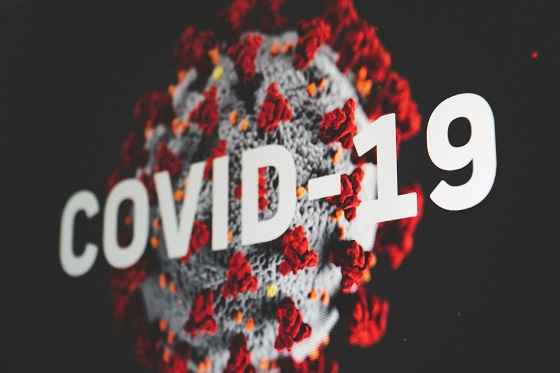
 COVID-192 days ago
COVID-192 days agoStudy finds nearly half of ‘COVID deaths’ had no link to virus
-
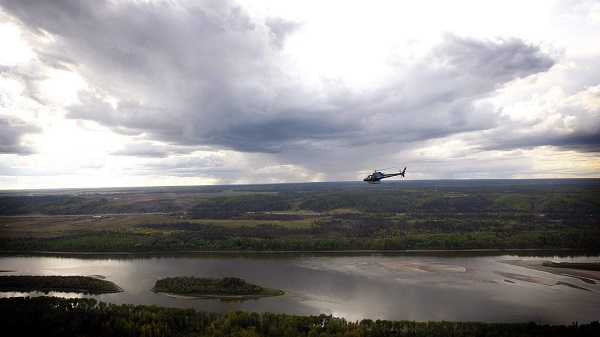
 Alberta2 days ago
Alberta2 days agoEnergy projects occupy less than three per cent of Alberta’s oil sands region, report says
-

 Energy2 days ago
Energy2 days agoOil tankers in Vancouver are loading plenty, but they can load even more
-

 International2 days ago
International2 days agoIce Surprises – Arctic and Antarctic Ice Sheets Are Stabilizing and Growing
-

 Alberta2 days ago
Alberta2 days agoCharges laid in record cocaine seizure
-

 2025 Federal Election1 day ago
2025 Federal Election1 day agoCarney says Liberals won’t make voting pact with NDP
-
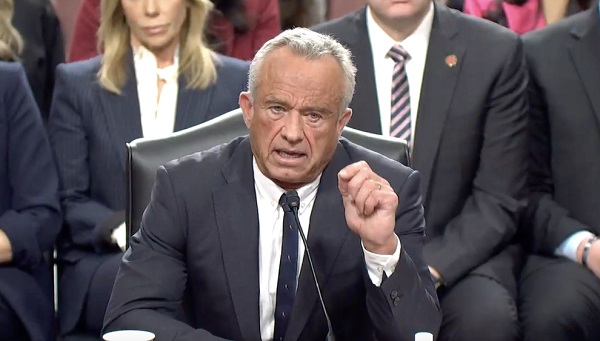
 Autism1 day ago
Autism1 day agoNIH, CMS partner on autism research
-

 Energy2 days ago
Energy2 days agoCarney’s energy superpower rhetoric falls flat without policy certainty
